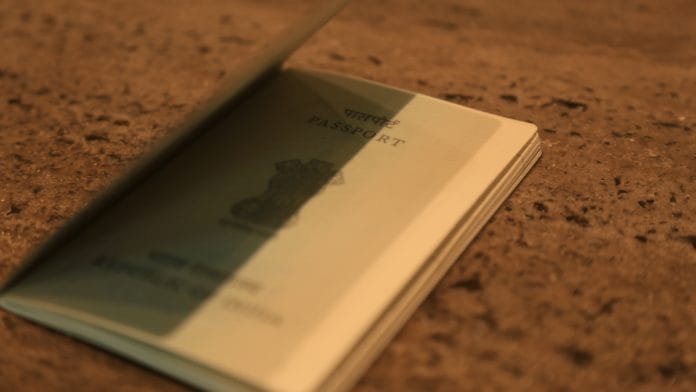New Delhi: The Ministry of Civil Aviation is actively working with a Portugal-based multinational technology firm to develop mobile health passports but no formal decision has been taken yet, ThePrint has learnt.
The company, Vision-Box, develops biometrics, mechatronics and surveillance solutions and has partnered with airports, airlines, border control and governments worldwide.
“No formal decision has been made on India’s mobile health passport technology, but it is clear that in order to resume international travel and allow Indians to enter other countries, a mobile health passport technology will need to be in place,” Mitul Ruparelia, head of sales in Europe, Middle East, Africa & India, Vision-Box told ThePrint.
This is likely to be closely linked to the DigiYatra platform, he added. DigiYatra is an initiative launched by the Modi government in October 2018 to promote paperless air travel using facial recognition and other technologies.
“I think the pandemic is a new way of living and mobile health passports won’t be a one-time fix,” Ruparelia said, adding that vaccines will become imperative to travelling.
When asked to corroborate the initiative, an official from the civil aviation ministry told ThePrint that they will not be able to comment on the issue at this stage.
Also read: Not just travel, people now want vaccine passports to enter restaurants, concerts, stadiums
Mobile health passports
A mobile health passport or a vaccine passport is a digital identification, which will allow free movement of fully vaccinated people during the pandemic. It will authenticate an individual’s health data, from Covid-19 tests, recoveries to when they were administered vaccine doses.
Several countries, primarily in the West, have accepted such passports or are in the process of devising their own.
For example, Digital Green Certificate, a type of mobile health passport backed by the European Union, entitles all member states to adopt the technology from June 2021 onwards.
The certificate will have a QR code, either in digital or paper version, that contains essential information as well as a digital signature. National authorities are in charge of issuing the certificate free of charge.
Since mid-April, airlines like Emirates, Qatar Airways, Air New Zealand, Malaysia Airlines, Singapore Airlines have been incorporating the International Air Transport Association (IATA) Travel Pass — another type of mobile health passport — into their mobile apps.
Similarly, Scan2Fly has been developed by Air Asia for select routes including Kuala Lumpur, Singapore and Jakarta and New York-based CommonPass, has partnered with the World Economic Forum (WEF), to launch trials with airlines like Lufthansa and Virgin Atlantic.
However, as India grapples with a second Covid-19 wave, a new variant and international travel bans, industry experts cannot determine when the country will officially adopt mobile health passports.
“It depends on how the pandemic and vaccination drive evolves in India,” Manavendra Prasad, director of operations, Aviation Technology Forum of India (ATFI) told ThePrint.
“That said, going digital is necessary. We’ve seen how QR codes are now a must with RT-PCR tests in order to counter fake negative reports,” he added.
Prasad also suggested linking Aadhaar cards with flight tickets, as envisaged under the DigitYatra initiative, in order to ease air travel.
Also read: WHO chief thanks India, South Africa for initiative to waive ITRIPS rules for Covid products
More clarity needed on technicalities of vaccine passports
When it comes to mobile health passports, there is still ambiguity on whether countries will allow entry to individuals inoculated with only certain vaccines.
For example, there is no clarity on whether a person vaccinated with Bharat Biotech’s Covaxin will be allowed to travel to the US or the UK, given that the vaccine is not WHO-approved and has only been permitted for emergency use in India.
Ruparelia said countries are unlikely to “discriminate” based on this but “what is considered acceptable today may not be acceptable tomorrow”, he noted.
Meanwhile, industry experts have also pointed out that students wanting to study overseas are already facing this problem.
According to a report in The Times of India, students who have applied to study abroad and have been vaccinated with Covaxin are unsure if this will make them ineligible for air travel.
Students, along with academics and journalists, are one of the few groups exempted from the travel ban imposed by the US on India on 4 May.
Also read: Media reports on vaccine shots given in May ‘factually incorrect’, says Health Ministry






